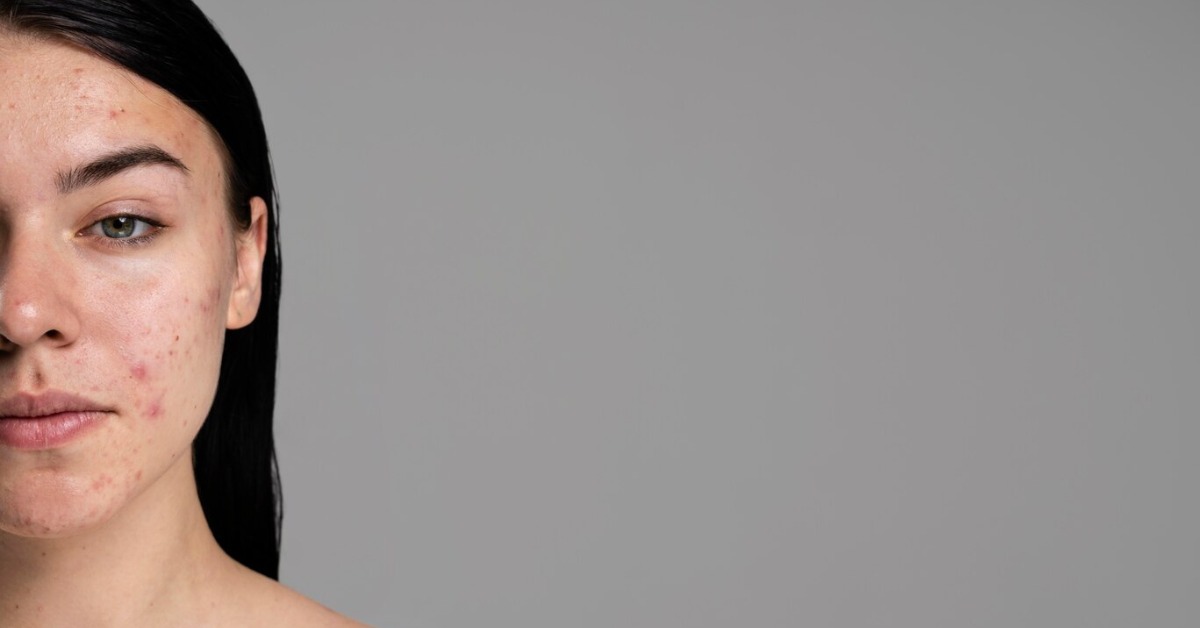The skin is the largest and one of the most vital organs of the human body. It not only reflects our overall health but also plays a crucial role in determining our beauty and self-confidence. When the skin’s color or tone becomes uneven or discolored, it can impact how we feel about ourselves. Several factors can lead to skin discoloration, some of which are common, while others require medical attention. By understanding the causes, identifying the symptoms, and seeking timely diagnosis and treatment, you can address this issue effectively. In this article, we will explore the symptoms, causes, diagnosis, and available treatments for skin discoloration, including options for treatment by doctors in Indore.
Symptoms of Skin Discoloration
Recognizing the symptoms of skin discoloration is essential for seeking the right treatment. Some common signs to watch for include:
- Darkening or Lightening of the Skin:
Certain areas of the skin may appear noticeably darker or lighter than the surrounding areas. - Spots or Patches:
Brown, black, or white spots or patches may appear on the skin, disrupting the even tone. - Freckles or Melasma:
Freckles or dark patches can form on specific areas of the face, such as the cheeks, nose, forehead, and around the lips. - Itching and Irritation:
Sometimes, discoloration is accompanied by dryness, itching, or a mild burning sensation. - Acne Scars:
Persistent acne marks can cause long-term discoloration. - Uneven Texture:
The skin may lose its natural glow and appear dull and lifeless.
If these symptoms persist, consulting a doctor in Indore is highly recommended for a thorough evaluation and treatment plan.
Causes of Skin Discoloration
Several factors can contribute to changes in skin tone. Here are some of the most common causes:
1. Exposure to UV Rays
Prolonged exposure to the sun’s ultraviolet (UV) rays can increase melanin production, causing the skin to darken. This may lead to sunspots, pigmentation, and an uneven complexion.
2. Hormonal Imbalances
Pregnancy, menstrual cycles, or hormonal disorders can cause skin discoloration. Conditions such as melasma are common in women, where brown patches develop on the face due to hormonal changes.
3. Nutrient Deficiencies
Deficiencies in essential nutrients like Vitamin B12, Vitamin D, and iron can affect skin health, leading to dullness or discoloration.
4. Skin Disorders
Conditions such as vitiligo, eczema, psoriasis, and melasma can cause patches of discolored skin. These conditions may require specialized medical treatment.
5. Acne and Infections
Frequent breakouts or skin infections caused by bacteria and fungi can leave behind marks or scars that lead to uneven skin tone.
6. Medication Side Effects
Certain medications, including antibiotics, chemotherapy drugs, and steroids, can cause changes in skin pigmentation as a side effect.
7. Genetic Factors
Some skin conditions are hereditary. If a family member has a history of skin discoloration, you may be predisposed to similar issues.
8. Stress and Lifestyle
High stress levels, irregular sleep patterns, and unhealthy lifestyles can diminish skin radiance and lead to discoloration.
9. Pollution
Exposure to environmental pollutants and dust can clog pores and damage skin cells, affecting your skin tone.
Diagnosis of Skin Discoloration
Accurate diagnosis is essential for determining the cause of skin discoloration and selecting the right treatment. Doctors in Indore use various diagnostic methods, such as:
1. Physical Examination
A dermatologist examines the affected areas to identify potential causes of discoloration.
2. Blood Tests
Blood tests help identify nutrient deficiencies, hormonal imbalances, or other underlying health issues.
3. Skin Biopsy
In some cases, a small sample of skin is taken and analyzed in a lab to rule out serious skin conditions.
4. Wood’s Lamp Examination
UV light is used to detect skin pigmentation issues beneath the surface layer of the skin.
5. Allergy Tests
If allergies are suspected, skin allergy tests help identify potential allergens causing the discoloration.
Treatment Options for Skin Discoloration
There are various treatments available to address skin discoloration. Treatment options in Indore include the following approaches:
1. Topical Creams and Lotions
- Hydroquinone Cream: Helps lighten dark patches caused by hyperpigmentation.
- Retinoids: Promote the growth of new skin cells and improve skin texture.
2. Chemical Peeling
Chemical solutions are applied to remove the top layer of dead skin, revealing brighter, healthier skin underneath. This treatment helps reduce pigmentation and improves overall skin tone.
3. Laser Therapy
Laser treatments target and break down melanin deposits in the skin, helping to remove dark spots, patches, and acne scars. Many clinics offer laser therapy treatment in Indore for skin-related concerns.
4. Microdermabrasion
This procedure exfoliates the upper layer of skin to remove dead cells and improve skin tone.
5. Use of Sunscreen
Daily application of a broad-spectrum sunscreen protects the skin from UVA and UVB rays, preventing further discoloration.
6. Vitamin Supplements
Taking Vitamin C, Vitamin E, and Vitamin D supplements supports skin health and helps reduce pigmentation.
7. Home Remedies
- Aloe Vera: Soothes and nourishes the skin.
- Lemon and Honey: Lightens the skin naturally and provides a healthy glow.
- Turmeric and Yogurt: Brightens skin and reduces inflammation.
Skin Care Tips for Preventing Discoloration
- Keep Your Skin Clean: Wash your face regularly with a gentle cleanser.
- Moisturize Daily: Use a moisturizer suitable for your skin type.
- Manage Stress: Practice relaxation techniques and get adequate sleep.
- Eat a Balanced Diet: Include foods rich in vitamins and antioxidants.
- Avoid Smoking and Alcohol: These habits can damage skin health.
- Exfoliate Weekly: Remove dead skin cells to maintain an even tone.
Skin discoloration can be caused by various factors, ranging from sun exposure and hormonal changes to underlying skin conditions. Early diagnosis and the right treatment are essential for improving skin tone and texture. Consulting a doctor in Indore can help you determine the best course of action tailored to your needs. By maintaining a consistent skincare routine, adopting healthy lifestyle habits, and seeking professional treatment when necessary, you can restore your skin’s natural glow and confidence.
FAQs
- What are the most common causes of skin discoloration?
Skin discoloration can be caused by several factors, including prolonged sun exposure, hormonal imbalances, skin conditions like melasma and vitiligo, nutrient deficiencies, acne scars, and side effects of certain medications. Environmental pollutants and high-stress levels can also contribute to uneven skin tone. - How can I prevent skin discoloration from sun exposure?
To prevent skin discoloration caused by UV rays, use a broad-spectrum sunscreen (SPF 30 or higher) daily, wear protective clothing like hats and sunglasses, and avoid prolonged sun exposure, especially between 10 AM and 4 PM. Reapply sunscreen every two hours when outdoors. - When should I see a doctor for skin discoloration?
You should consult a doctor in Indore if you notice persistent dark or light patches, sudden changes in skin color, itching, irritation, or if home remedies and over-the-counter treatments are not effective. Timely diagnosis can help address underlying health issues and prevent further complications. - What treatments are available for skin discoloration in Indore?
Treatments for skin discoloration in Indore include topical creams (like hydroquinone and retinoids), chemical peels, laser therapy, microdermabrasion, and vitamin supplements. Dermatologists may also recommend personalized treatment plans based on the specific cause and severity of the condition. - Are home remedies effective for treating skin discoloration?
Yes, some home remedies can help lighten mild cases of discoloration. Aloe vera, lemon juice, turmeric, yogurt, and honey have natural brightening properties. However, for persistent or severe cases, professional treatments are more effective. It’s best to consult a specialist to avoid worsening the condition.


